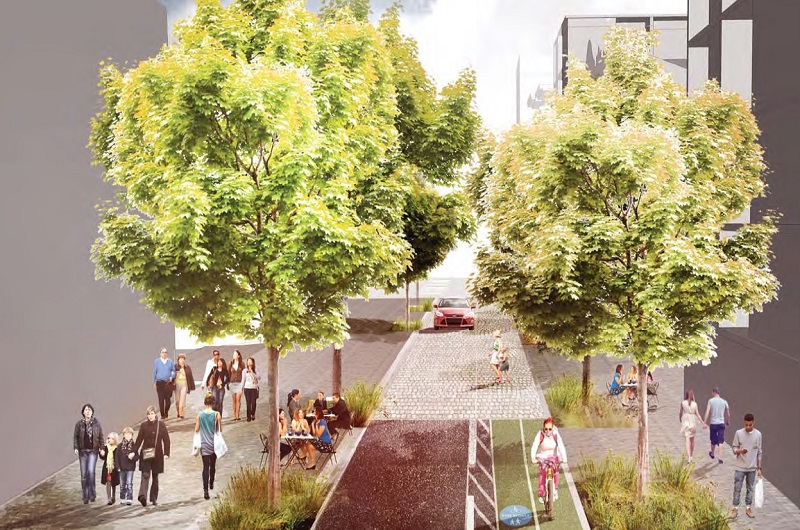Treasurer Josh Frydenberg said the Government’s focus was to support a coalition of groups to assist in the protection and restoration of our environment following the bushfires.
“This initial investment of $50 million into the protection and restoration of our wildlife and habitat is a critical step in creating a viable future for the animals that have survived,” the Treasurer said.
“As part of the Government’s support $25 million will be provided for an emergency intervention fund to be used on critical interventions where required and to help with the immediate survival of affected animals, plants and ecological communities and to control pests and weeds.
“A further $25 million will be made available to support wildlife rescue, our zoos, Natural Resource Management Groups, Greening Australia and Conservation Volunteers Australia with on the ground activities.
“This support will help provide much needed shelter and protection for our native animals and plants from feral predators and pests while local habitats are rehabilitated.”
The immediate priorities are to:
- Care for and rehabilitate injured wildlife, and secure viable populations of threatened species.
- Control feral predators, other pest animals and noxious weeds that are a major threat to vulnerable animals and plants at this time.
- Scientifically map and understand the true impact of these fires.
- Work with landowners to protect those precious remaining unburned areas, which will serve as ‘arks’ and allow our native plants and animals to recover.
At a local level, up to $25 million will be made available. This will include:
- Up to $7 million for Natural Resource Management groups in bushfire affected areas to carry out emergency interventions including control of feral predators, other pest animals and weeds, and habitat protection measures (such as fencing and nest boxes).
- Up to $7.5 million to support on-ground wildlife rescue, protection and care services and address emerging needs on the frontline.
- Up to $5 million for Greening Australia to increase supply of seed and native plants for revegetation.
- Up to $3 million for Taronga Zoo, Zoos South Australia and Zoos Victoria for treatment and the establishment of insurance populations. This is in addition to the $3 million supporting Queensland Koala Hospitals and the $3 million for Koala habitat restoration in northern NSW and south-east Queensland.
- Up to $2.5 million for Conservation Volunteers Australia to mobilise volunteers through a national coordination point.
The Government will coordinate with organisations across Australia to ensure the money goes where it is needed and complements the wave of generous private donations that has flowed in recent weeks.
At a national level, the Threatened Species Commissioner, Dr Sally Box, will Chair a panel of experts charged with advising the Federal Government on further immediate actions funded through the $25 million emergency intervention fund and in developing a long-term wildlife protection and habitat restoration plan. She will work closely with the National Bushfire Recovery Coordinator – Andrew Colvin.
This panel will include members from the Australian National University, University of Melbourne, Charles Darwin University, Charles Sturt University, Zoos Victoria, CSIRO the Australian Government’s Indigenous Advisory Committee and representatives from each state and territory.
Dr Box and the panel will:
- advise the Minister for the Environment on further critical interventions required to support the immediate survival of affected animals, plants and ecological communities and to control pests and weeds.
- assess and map the scale of the impacts of the bushfires on our environment and prioritise recovery efforts, which will inform development of a strategy for building populations of native plants and animals back up again and ensuring their resilience into the future.
Minister for the Environment Sussan Ley said it is still too early to know the full impact of these fires other than it is catastrophic.
“The environmental recovery effort requires collaboration between governments, environment organisations, scientists, farmers, communities, business, philanthropists and industry.
“This is an historic environmental challenge and we need to be guided by scientific experts in the field, by our national research bodies, the traditional owners who have managed this land over tens of thousands of years, our farmers whose passion and commitment to the land spans generations and our local communities.
“The resources and innovation of the private sector will also play a critical role in drawing this national effort together.
“A series of Ministerial roundtables comprising communities, farmers, environmental organisations, business and scientists will also be held and work closely with the expert panel.”
The long-term plan will set out clearly the direction we need to go, the actions to take and outcomes to be achieved to restore our fire-damaged environment. It will guide funding allocation by Government and ensure all sectors are working together.

 Under the Hunter Street Newcastle East End Stage One Streetscape Plan, bluestone footpaths, cobblestone laneways and new outdoor eating and retail opportunities will add to the character of the Mall.
Under the Hunter Street Newcastle East End Stage One Streetscape Plan, bluestone footpaths, cobblestone laneways and new outdoor eating and retail opportunities will add to the character of the Mall.